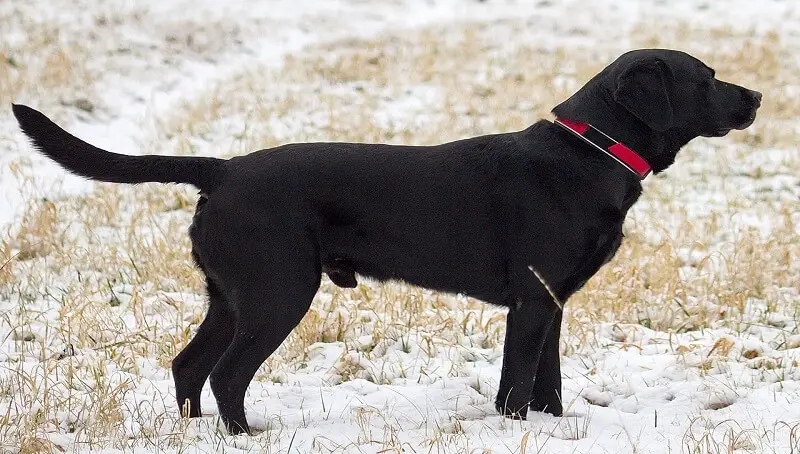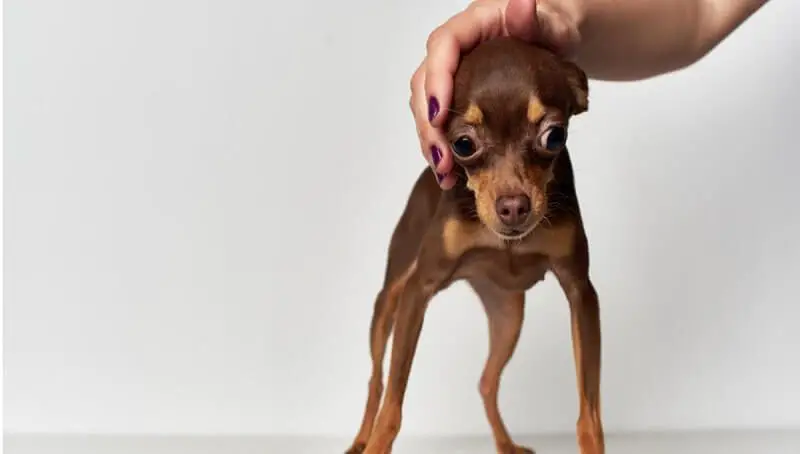
Can Dogs Eat Blueberries?
July 28, 2022
Labrador Retrievers – Facts About These Amazing Dogs
July 31, 2022
Most dogs will have a behavior that will fluctuate between cute and quirky. Even though it might happen that your pup will tremble due to feelings of excitement while on a walk or when you feed him, it would be unusual for the pet to suddenly start shaking while also acting out of the ordinary. If you’re one of the people that are desperately trying to find out why is a dog shaking and acting weird, then this article should offer you the answers you’re looking for.
I’ll do my best to go over the most common reasons why a dog would start shaking uncontrollably and acting unusual. What you should take out of this article right from the start, is that even if you think that your pet is acting weird due to a positive reason, you should still consider taking it to the vet to make sure you have nothing to worry about. When talking about the health and well-being of your dog, it’s always better to be safe.
Some possible reasons a dog might be shaking and acting weird
If you’re a long-time dog owner, you surely had quite a few opportunities to see your pet shake due to excitement. When your dog is also exhibiting strange behavior along with trembling, it usually is a sign that something might be wrong. Below are the most common reasons why dogs would behave oddly and shake.
Your dog is in heat
Known among breeders as being in heat, an unspayed dog female will go in a period of fertility two times per year. This period of heat can frequently be accompanied by general anxiety, frequent urination, and uncontrollable shaking, according to NCRAOA (National Canine Research Association of America). These symptoms are usually followed by increased friendliness toward other dogs and especially males, vaginal bleeding, and a swollen vulva. If your dog is shaking and has an unusual behavior due to her estrus cycle, then there is in fact an easy fix for this: Just have her spayed. This procedure is very common and many dog owners choose to have their dogs go through it. There is a slight risk of bleeding throughout the surgery, but this isn’t something to worry about.
You might also like my articles on why dogs sleep on their backs, where to put a dog crate in the house, and why is a dog’s nose warm.
Your dog has anxiety
 Mental issues like anxiety and stress, although common around humans, can also affect dogs and other animals. Your dog might be suffering from anxiety especially if it starts behaving weirdly and shaking during a fireworks display, thunderstorm, or other powerful noises. What you should do in these situations is to move the pet to a quieter room, away from all kinds of noises, talk to him in a calm tone and, if these things don’t seem to work, talk to a vet to see if any medication should be taken into account, with the purpose of calming the dog through stressful times.
Mental issues like anxiety and stress, although common around humans, can also affect dogs and other animals. Your dog might be suffering from anxiety especially if it starts behaving weirdly and shaking during a fireworks display, thunderstorm, or other powerful noises. What you should do in these situations is to move the pet to a quieter room, away from all kinds of noises, talk to him in a calm tone and, if these things don’t seem to work, talk to a vet to see if any medication should be taken into account, with the purpose of calming the dog through stressful times.
Your dog has Cushing’s disease
Hypercortisolism, an illness also known as Cushing’s disease, can become very serious when untreated. It usually affects middle-aged to senior dogs. This illness can cause side effects like hair loss, panting, increased thirst and hunger, calcinosis cutis, also known as plaques on the skin, incontinence, trembling, and even lethargy and will usually happen due to the dog’s adrenal glands creating too much of the stress hormone called cortisol. Cushing’s disease should not be diagnosed at home by the owner and should be left to your veterinarian. This is why you should take your pet to the vet as soon as you notice symptoms that might point to it.
Your dog experiences heat exhaustion
Although pretty counterintuitive, dogs will oftentimes shiver from too much heat, going through what is known as heat exhaustion. When going through this, your dog might also pant a lot, along with shaking and behaving unusually. Humans can release some heat from their bodies by sweating. Dogs don’t have this luxury. What they do instead, is pant as a way of cooling themselves off. Heat exhaustion should be treated as soon as possible, to avoid some very serious health consequences. You should take the dog to the vet as soon as possible when you think it is suffering from heat exhaustion because this condition can become lethal at some point.
Your dog might have been poisoned
Shaking accompanied by pale gums, vomiting, and erratic behavior, are all symptoms of poisoning, usually caused by your dog ingesting something toxic. Among the most common culprits of poisoning your pet are xylitol, which is a sugar substitute commonly found in food items, chemicals like antifreeze, grapes, chocolate, and even insect or rat poison. If you suspect that your dog might be poisoned, take it to the vet as soon as possible.
Your dog has distemper
This is a virus that is most commonly found in young pups, due to the fact that a vaccine against it is readily available, so it will mostly affect unvaccinated pets. The most common symptoms of distemper are coughing, vomiting, diarrhea, shaking, fever, and discharge from the nose and eyes. The AVMA (American Veterinary Medical Association) states that distemper can easily become fatal and dogs that do make it out alive are left with nervous system damage that can be permanent. If your dog is diagnosed with this very ugly disease, you should know that although it will receive the supportive care it will need, a real cure isn’t available at this point. Contact your vet as soon as possible if you believe your dog suffers from distemper or got in contact with an infected dog.
Keep in touch with your vet
Never ignore your dog shaking and acting weird. Instead, what you do want to do is assess the situation calmly and quickly. Can this state be caused by any loud sounds around you? Did the dog spend too much time outside in the head? Might this be caused by health conditions? You can even try to video record your pup for a minute or so, to have something to show your vet in the event that its shaking stops when getting to the clinic.
Also look out for other symptoms and tell your vet about anything else you notice about your dog or its circumstances.
